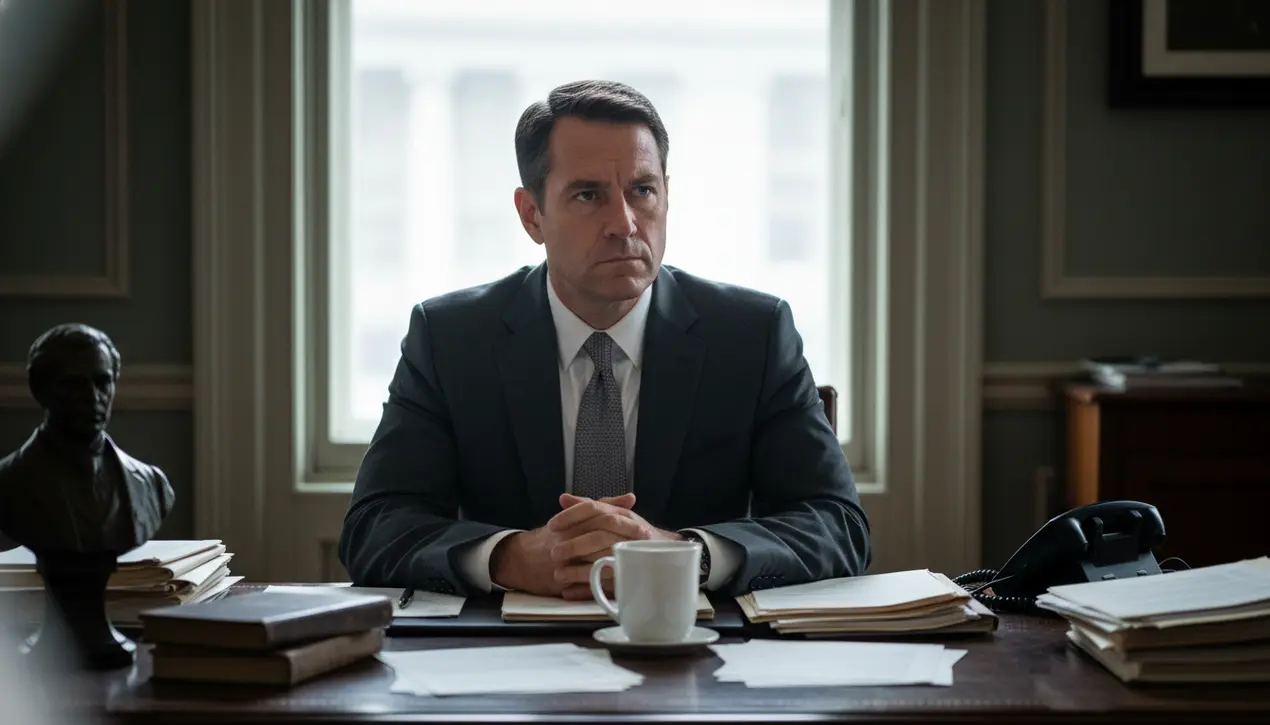
Politicscorruption & scandals
FCC boss Brendan Carr won't end news distortion probes.
RO
Robert Hayes
4 hours ago7 min read4 comments
In a move that underscores the enduring tension between regulatory independence and political pressure, FCC Commissioner Brendan Carr has firmly rebuffed calls from four former agency chairs—including three from his own Republican party—to cease longstanding probes into alleged news distortion. This is not merely a bureaucratic squabble; it is a profound test of institutional integrity, reminiscent of the challenges faced by regulatory bodies throughout American history when confronting external influence.The former chairs, whose tenures span different political eras, argued collectively that the investigations, which examine whether broadcasters deliberately skewed news coverage, represent a dangerous foray into content regulation that chills free speech. Yet Carr, in his resolute response, frames the matter as a fundamental question of public trust, invoking the FCC's historical mandate to ensure broadcasters operate in the public interest, a principle dating back to the Radio Act of 1927 and fortified by the landmark Red Lion Broadcasting v.FCC decision which affirmed the public's right to access diverse and accountable viewpoints. The dissenting former chairs, whose identities carry significant weight in telecom policy circles, represent a rare bipartisan consensus, suggesting that the issue touches a nerve that transcends typical partisan divides.However, Carr's stance signals a deliberate pivot, emphasizing that the core function of the commission is to scrutinize potential abuses of the public airwaves, not to shy away from difficult inquiries under the specter of political discomfort. This debate is unfolding against a backdrop of a severely fragmented media ecosystem and rampant public distrust in institutions, where the very concept of 'news' is perpetually contested.The probes themselves, often initiated based on detailed public complaints and internal research, do not seek to adjudicate the truthfulness of specific reports but rather to investigate whether a pattern of deliberate, systematic distortion violates the licensee's obligation to serve their community. The consequences of Carr's decision are far-reaching; to abandon these investigations could be perceived as the FCC capitulating to industry and political pressure, thereby eroding its credibility.Conversely, pursuing them risks accusations of overreach in an era hypersensitive to claims of censorship. This is a Churchillian moment for the commission—a time for resolve, not retreat.It calls for a serious, analytic approach that weighs the delicate balance between the First Amendment and the statutory responsibilities of a regulator tasked with stewarding a resource owned by the American people. The outcome will undoubtedly set a critical precedent, influencing not only the future of broadcast journalism but also the operational autonomy of federal agencies for years to come.
#FCC
#news distortion probe
#Brendan Carr
#government investigation
#regulatory scrutiny
#featured
Stay Informed. Act Smarter.
Get weekly highlights, major headlines, and expert insights — then put your knowledge to work in our live prediction markets.
Comments
Loading comments...
© 2025 Outpoll Service LTD. All rights reserved.